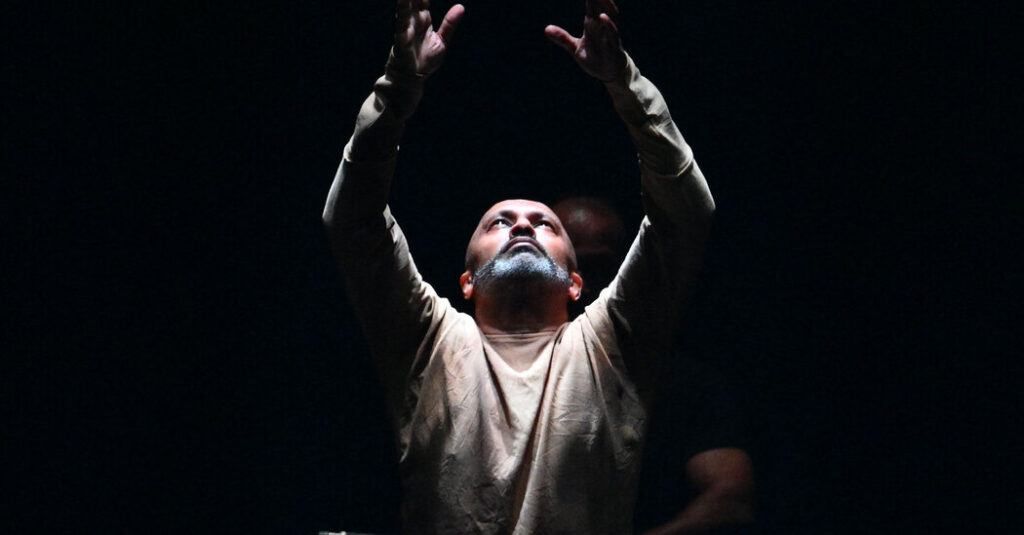It was at a residency held in 2022 in Kumbakonam, in the southern state of Tamil Nadu, that he met the dancers he would cast in “Gigenis.” Four of the seven, including Khoo, specialize in Bharatanatyam, perhaps the most commonly practiced classical form. The youngest, Sirikalyani Adkoli, 18, is an Odissi dancer, a student at Nrityagram, a training center near Bangalore, whose ensemble regularly visits New York. (Adkoli was only 15 at the time of the residency.) Venu is a second-generation practitioner of Kutiyattam, an ancient form of Sanskrit theater from Kerala. (In 2012, she performed a solo evening at the Asia Society in New York City.)
“I don’t really identify as a dancer,” Venu said in a recent video call from Zurich, where she was visiting family. “I’ve always thought of myself as an actor.” But Kutiyattam performances include movement, music (mainly drumming), singing and mime — as well as extremely vivid costumes and makeup. In “Gigenis,” she, like the others, does without these. “It creates an interesting kind of vulnerability,” she said.
Venu, an intensely physical and dramatic artist, is the performer who opens the piece with that terrifying solo. “In my mind,” she said, “it represents the monstrosity of war, and how violence begets violence.”
Inspired by the residency at Kumbakonam, Khan originally planned to present a festival of Indian dance. But as he and the others began a rehearsal period in Italy last year, he realized he wanted them to come together to tell a single story, each performer using his or her style of Indian dance. The dancers brought material, which Khan — credited as director, not choreographer — edited and wove together into an impressionistic narrative about a woman (a queen, a mother, a wife) looking back on her life.
“It was really instinctual,” Khan said, “a process of trial and error, trial and error. As we went along, my idea of what I was looking for continually changed.” And though he had not planned to dance in it — he has pulled back from performing the punishing evening-length solos he was once known for — he found himself drawn into the action.
At its center is Venu. As the protagonist, she conjures and observes the others, who enact scenes from her life. She mourns the death of her husband and crowns one of her sons (Khoo). The other son, played by Khan, is consumed by ambition. Their conflict leads to war, violence and more death.


